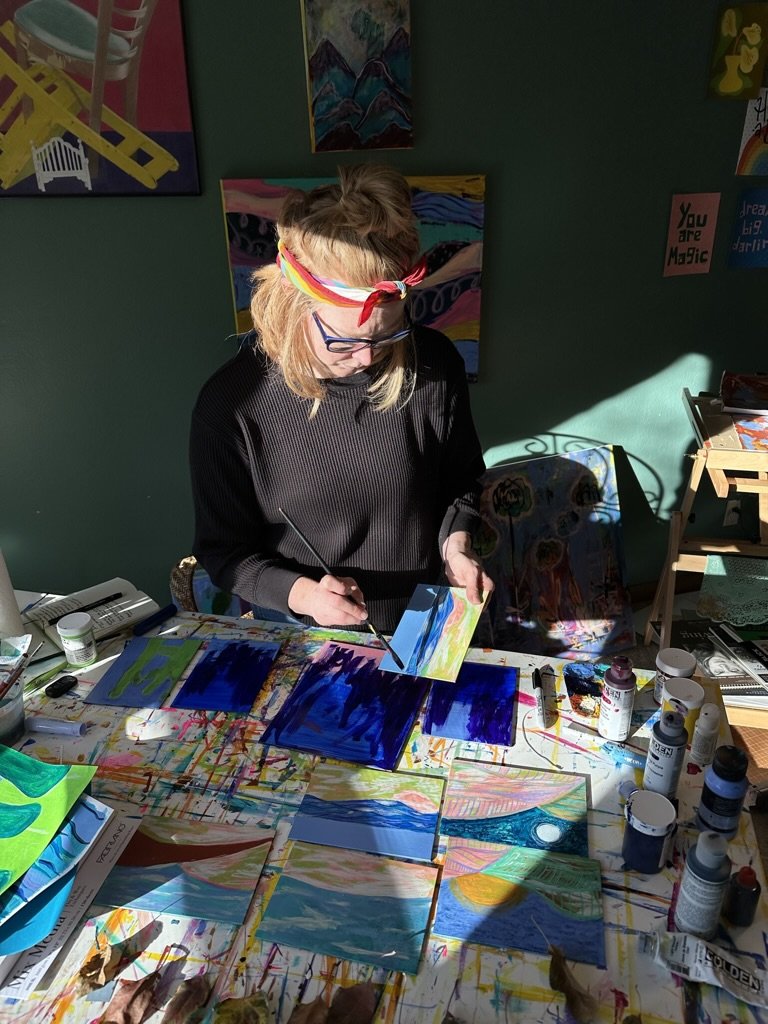Self-Compassion: A Vital Resource in the Wild of Chronic Illness
I recently connected with a lovely, fellow wellness practitioner Elisha (music therapist and owner of Feel Creative Wellness) who also supports folks living with chronic and complex health conditions. One thing we talked about is the importance of intentionally and clearly defining our approaches to wellness, especially given how harmful and ableist “wellness culture” can be (you can check out the rest of our conversation here!).
As I share in my philosophy, I believe that wellness is an incredibly personal journey (not destination) and everyone has a unique path. While there are certainly evidence-based approaches, such as empowered self-management, there is no one-size-fits-all protocol, program, or framework for living well with chronic illness.
However, I do believe there are vital resources needed for the journey and one of the most important is self-compassion.
Simply put, self-compassion is an inner commitment to caring for yourself as you would a friend, especially in times of challenge, stress, and overwhelm. Kristin Neff, leading self-compassion researcher and author, identifies three core elements of self-compassion: mindfulness, self-kindness, and common humanity. Embodying these elements can also be described as “cultivating a state of loving, connected presence” (The Mindful Self-Compassion Workbook, p. 12). Neff writes,
"Sometimes we need to comfort and soothe ourselves for how hard it is to be a human being before we can relate to our lives in a more mindful way."
Through years as an occupational therapist in the traditional healthcare setting, I have come to realize that self-compassion is a mostly overlooked and undervalued piece of self-management support – the empowering, collaborative process of navigating medical, emotional, and role management with health conditions.
Yes, I can teach about energy conservation; assistive and adaptive tools; task modifications; as well as habit and routine change. But if a client is stuck in self-criticism, rumination, and isolation (the opposite of the 3 elements of self-compassion), we need to attend first to the foundation of establishing a loving, connected presence.
Self-compassion is not superfluous – it is the foundation of living well with chronic illness.
Because no matter how many strategies you learn, it won't be enough if you don't start with bearing witness to your own struggle and the internalized narratives that make you...
believe you have to prove yourself and be super-human all the time;
think your challenges are less significant than those of others, so they don’t deserve kind attention and space to grieve;
get stuck on a loop of feeling you should be able to do things the “normal” way even when that’s not working for you;
try to do all the things, be the perfect patient, keep everyone else going too, and not allow room for your own experience and feelings.
Practicing self-compassion begins with noticing those narratives at work and continues with unpacking and interrogating them while creating room for you to thrive in your real, right-now life. Finding ways to turn towards the hard stuff – the frustration, grief, and loss – with mindfulness and self-kindness is part of the journey. So is connecting to common humanity by showing up and sharing your experience in trusted spaces.
How do you start building greater self-compassion?
As with so many things, just one bit at a time. Here are a few ways you can lean into this slow, deep work as reflected through each of the 3 elements of Neff’s model of self-compassion:
Self-kindness – Pay gentle attention to how you talk to yourself (gentle, otherwise this can reinforce self-policing). What do you say when things are really hard or when you are human and mess up? Try writing a short note to yourself as though you’re writing to a dear friend. Find other ways to release stress and self-criticism.
Mindfulness – Notice if you tend to become consumed by negativity or go the opposite way and ignore your suffering. How can you invite more balance? You might imagine a thought or feeling as a cloud floating across the sky. Without forcing it away, let yourself move closer to it or farther away. What happens?
Common humanity – Surround yourself with others who are also trying to embrace their whole selves. Notice what they share, how they respond to your struggles, and where your experiences intersect. Remind yourself you are not alone.
You might think of self-compassion as a lantern you take with you as you walk along the dark, uncharted path of living with chronic illness.
It can’t magically transport you out of the wilderness, but it can change your relationship to it. It can’t show you exactly where to go, but it can help you see yourself and your situation more clearly. And it can guide you towards others in the wilderness, a beacon for connection that can merge into a widening circle of light, as you realize you are not alone out there.
If you’re looking for a community space to explore a self-compassionate, mindful approach to living well with chronic illness, Root to Rise groups might be a great fit! These are mindful self-management groups for learning practical strategies and mindset shifts for navigating everyday life with more ease, confidence, and creativity.
You can also dive into the Rooted + Resilient Playbook (which you get in the first email when you sign up for my newsletter here!) I designed this creative guide to help you reflect on this season in your life with mindfulness and self-kindness.













